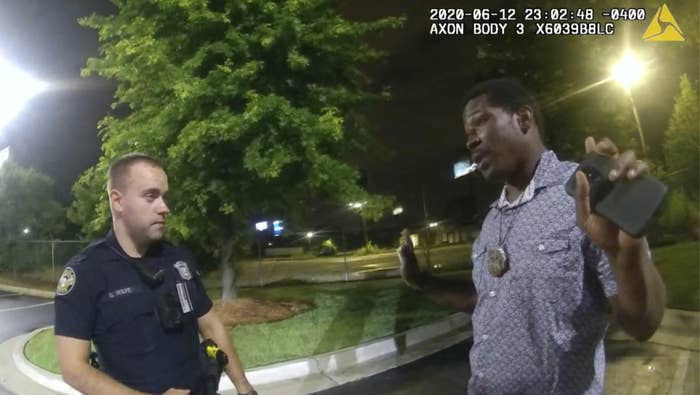
The white police officer who shot and killed Rayshard Brooks, a 27-year-old Black man, two years ago in Atlanta will no longer face charges, a special prosecutor announced Tuesday.
Prosecutor Danny Porter said Garrett Rolfe, the police officer who fatally shot Brooks, "did not act with criminal intent" and his use of deadly force was "objectively reasonable."
On June 12, 2020, police were called to a Wendy's in Atlanta because Brooks was asleep in his car, which was blocking the drive-thru lane. After police ordered Brooks to move his car, they gave him a field sobriety test and determined his blood alcohol level was above the legal limit. As Brooks was being handcuffed, he began hitting Rolfe and another officer on the scene, Devin Brosnan. Brooks then ran away with one of the officers' Tasers. Rolfe shot Brooks in the back three times.
During Tuesday's news conference, prosecutors presented video from the officers' body cameras, as well as from onlookers and surveillance footage. They said they believed Rolfe was in the right to use force because Brooks had taken and fired one of the officer's Tasers at them.
Rolfe was initially charged with felony murder and was fired from the police department, only to be later reinstated. Brooks's death led to demonstrations in Atlanta, during which protesters burned down the Wendy's where the shooting occurred.
Special prosecutor Pete Skandalakis said Tuesday that it's important to remember the background of the case.
"We have to remember what mood our country was in in 2020 when this happened, and we have to remember what mood our state was in," he said.
Skandalakis said that when Brooks took the Taser, he was then in an "offensive position," and it could have been deadly.
"In this case, you must remember that here we have a peaceful encounter that all of a sudden becomes a violent encounter, and not only does it become a violent encounter, it is quickly changing, it is quickly dynamic," Skandalakis said. "We do not look at this with 20/20 hindsight. We look at it with what information the officers had in a dynamic situation that is quickly evolving and is causing them to react."
